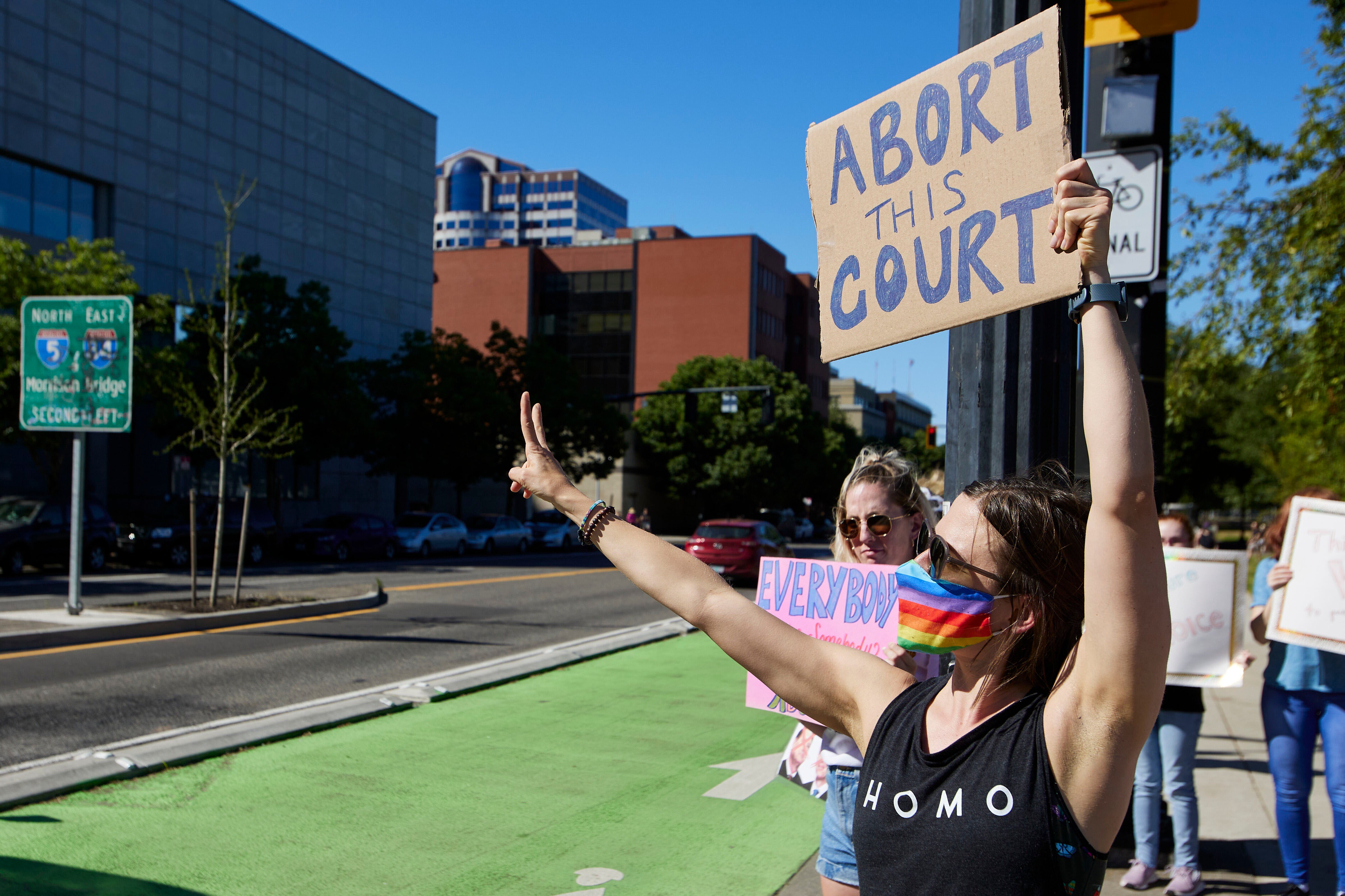Trump ignores the First Amendment and says those who criticize the Supreme Court should be tossed in jail
Former president has launched attacks against federal and state judges who have made rulings against him
Donald Trump scolded those who critique the Supreme Court at a rally on Monday, saying people should be jailed for “the way they talk about our judges and our justices” – despite the First Amendment allowing people to criticize the government.
The former president, who has invoked his First Amendment right to launch a bevy of attacks against federal and state judges, suggested it should be “illegal” to rebuke judicial decisions or try and advocate in favor of a certain decision.
“It should be illegal, what happens,” Trump told a crowd in Pennslyvania. “You know, you have these guys like playing the ref, like the great Bobby Knight. These people should be put in jail the way they talk about our judges and our justices, trying to get them to sway their vote, sway their decision.”
The former president was referring to the backlash the Supreme Court received after overturning Roe v. Wade in June 2022. He called the court “very brave” for making a decision that “everybody wanted” – an unfounded claim.

Under the First Amendment, people have the right to complain about government officials and decisions.
Trump himself has been safeguarded by this rule when during his New York criminal trial, Trump called Justice Juan Merchan “highly conflicted.” When a gag order was placed on him, Trump violated it at least 10 times and then utilized his allies to launch more attacks against the judge.
In his federal election interference trial, the former president claimed District Court Judge Tanya Chutkan was “highly partisan” and “VERY BIASED & UNFAIR” because she warned him not to make inflammatory statements about the case.
Trump has also criticized federal appeals courts, he once called the Ninth Circuit Court of Appeals “a complete & total disaster” with a “horrible reputation” and claimed the judges were “making our Country unsafe.”

Those statements, made in 2018, were in response to Chief Justice John Roberts rebuking Trump’s assertion that an “Obama judge” ruled against his asylum policy.
Yet, the former president stood in front of a crowd of supporters on Monday evening to insinuate it is not appropriate to criticize the Supreme Court – which is comprised of lifetime appointed, not elected, justices.
Trump also criticized Democrats’ desire to “pack the court”, or appoint more judges, to balance the conservative-to-liberal ratio. He claimed Vice President Kamala Harris wants to make the court 25 justices – it is unclear where that figure originated.
Harris supports President Joe Biden’s Supreme Court reform proposal which would authorize a president to appoint a new justice every two years to serve for 18 years. However, given Congress would need to approve the addition of justices, it is unlikely to happen.
Join our commenting forum
Join thought-provoking conversations, follow other Independent readers and see their replies
Comments
Bookmark popover
Removed from bookmarks